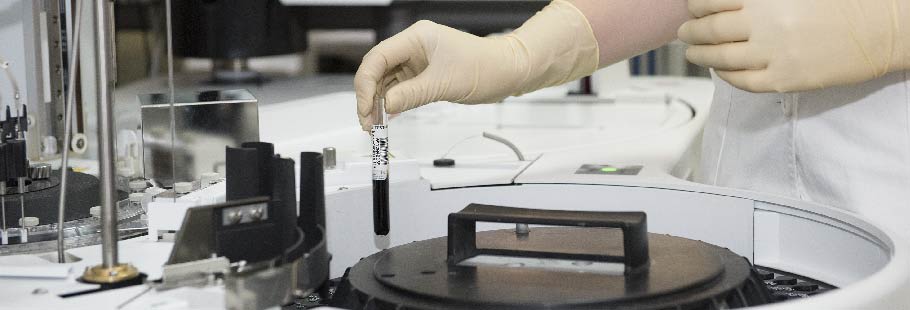How Doctoral Training Partnership PhD Funding Actually Works
Studying a PhD can be an expensive endeavour, and to complete one you will need some form of funding. There are many different ways to fund a PhD, from university scholarships and doctoral loans to self-funding and options for international students.
The ins-and-outs of how these different forms of funding work can differ a fair bit. And it’s hard to know how will affect you day-to-day, or what sort of obligations you need to fulfil for your funding.
The funding for my own PhD study is provided by a UK Research Council in the form of a Doctoral Training Partnership (or DTP). How does this DTP funding actually work?
Before continuing, it’s worth clarifying the eligibility requirements for DTP funding. As these programmes are offered by the UK Research Councils, they are open to applications from students of all nationalities (not just UK nationals). Find out more about Research Council studentship eligibility.
What is a Doctoral Training Partnership?
Doctoral Traing Partnerships are which train PhD students in research areas relevant to the Research Council’s remit, usually as a collaboration between various institutions. They generally include an internship or placement element, lasting up to three months.
My PhD is on a Molecular Microbiology research topic, and so it’s supported by the Biotechnology and Biological Sciences Research Council (or BBSRC). They have invested in the White Rose BBSRC Doctoral Training Partnership in Mechanistic Biology. The BBSRC DTP that funds my PhD (sick of these acronyms yet?) is spread across a collaboration between the universities of Leeds, Sheffield and York. This means there are currently over 160 PhD studentships funded in this way.
This funding system is really generous and ideal for students. But, this also means that these DTPs can be very competitive for applicants. A PhD project being on one of these DTP programmes is generally a mark of quality research and teaching. Research Councils are very keen to train you in all sorts of skills that doctoral students need and provide some additional development and skills training.
How do you apply for a Doctoral Training Partnership?
I found my DTP programme using FindAPhD – after a quick search I found a pre-set and pre-funded project in the topic that I wanted. Although I had less control over my PhD this way, it did mean that all the funding was already sorted out.
However, this is not always how it works. Sometimes, to join a Research Council-funded studentship (such as a DTP or a Centre for Doctoral Training; CDT) you need to be accepted for a PhD first, and apply for studentship funding in parallel or afterwards (either to the University or the studentship programme, not to the Research Council). This situation can be a little more precarious, but you get more control over your application. You can also apply for pre-funded and / or pre-set projects directly to the university or DTP.
What does Doctoral Training Partnership funding cover?
The Research Council DTP funds the doctorate in three ways: through fully funding PhD course fees, covering research costs, and a doctoral stipend.
Having the PhD fees fully paid to the university, for the full course of the degree, is extremely helpful (and generous!). The DTP sorts out these fees on your behalf, so there’s nothing to worry about here.
Another form that the funding takes is the covering of research costs. This money goes towards your research, and is used to pay for equipment, supplies, travel, training and any other related costs during your PhD. The amount of funding can differ between studentship programmes, but from my own experience, there’s usually an ample amount to cover everything you need. In my PhD study, my supervisor dealt with most of the management of these finances, but other PhD students may have more of an active role.
Finally, the DTP funds your training through a doctoral stipend. This acts like a salary to cover your living costs throughout your study. It’s roughly equivalent to minimum wage, and it increases slightly with inflation every year. It gets paid in four tax-free lump sum instalments across the year. This semi-regular payment can mean that towards the end of each yearly quarter you may be a little short on cash (especially around Christmas time), but some careful budgeting helps fix this. Plus, for things like paying rent it can be a little tricky to explain how your funding works, but if you give enough supporting information and documents it doesn’t tend to be a problem.
Of course, this is all dependent on your full-time PhD study, and it’s hard work! Studentships are hard to come by, so there’s a lot of pressure to really deliver good research (lots of working late and on weekends). There are also some commitments that need to be upheld throughout the PhD, such as attendance at DTP events and keeping regular updates on your research outcomes.
A condition of DTP funding is that you attend or participate in several events. These are spread across your PhD study.
For my DTP, this included yearly events held at the Fera Science facility near York. These included a cohort induction, presenting a “Molecules to Market” pitch (see below) and careers training.
There were also other training events, such as a statistics training day and a residential visit to the Research Complex at Harwell site (a big collection of laboratories with lots of cool facilities). We also took part in the “Molecules to Market” project: a science commercialisation project carried out across several months. It began with a session introducing commercialisation and forming project teams, then several months of collaborative team work developing a commercial science idea, and concluded with a ‘Dragon’s Den’ style business pitch to a panel of experts. This training didn’t take up too much time and developed some skills that you wouldn’t always learn on a PhD.
The DTP also held annual research symposiums across the three universities. In addition to meeting with students and academics, it offered the chance to get experience in presenting research posters, presentations, and conference organisation. These are skills that were important to learn during a PhD and came in useful at other research meetings and conferences. And, these symposiums were held at Christmas time, so featured a very welcome food and drinks reception!
Lastly, a key component of my DTP programme was carrying out a Professional Internship for PhD Students (PIPS). This was a three-month professional placement, unrelated to my research. The PIPS aims to give the student non-academic work experience, and a better understanding of industrial or commercial research. The three months away from my research was quite disruptive, but I gained a lot of skills that I otherwise would not have learned. Plus, it’s covered by the doctoral stipend, and some extra money can be applied for if necessary.
Although these events are compulsory, it’s not really a case of jumping through hoops. All of these workshops and experiences are intended to be training and development opportunities. This does mean extra work or travelling somewhere when you’d rather be working on your research, but it’s never really much hassle. Careful planning and management mean these commitments rarely interfere with your PhD. They also provided great opportunities to connect and network with fellow students across the three universities.
In addition to these DTP events, there are a few other obligations accompanying this form of funding. Every year, updates on my doctoral training must be sent to the BBSRC. This includes research outcomes, publications, activities, impact and more. The Research Council use this information to evaluate the output of their funding.
The DTP also likes to receive updates on these outcomes, albeit in a less regular and formal way. This is mostly just for their records, or to update their website.
And, when the PhD has been completed, you are required to complete an annual survey about your current career destination. Again, this is just for the DTP’s records and to evaluate the success of the training programme.
Filling out these research updates can feel a little overwhelming and judging (particularly if you don’t have that many research outcomes), but it doesn’t affect your current study – the Research Council won’t pull your funding just because you couldn’t prove your hypothesis!
Working in a Research Council-funded DTP can be quite different to other forms of PhD support. Although there are several obligations that come with this funding, on top of requirements that your university may ask of you, these commitments are intended to serve you and improve your doctoral training. They’re definitely worthwhile for an excellent funding studentship. I feel very fortunate to have secured this form of Research Council funding for my PhD study!
Editor's note: This blog was first published on 31/10/2018. We've checked and updated it for current readers.
Find a Doctoral Training Partnership
Browse DTP projects listed here on FindAPhD.
Want to learn more about PhD funding opportunities?
Sign up to our newsletter for the latest PhD project listings and advice.

 Continue with Facebook
Continue with Facebook








